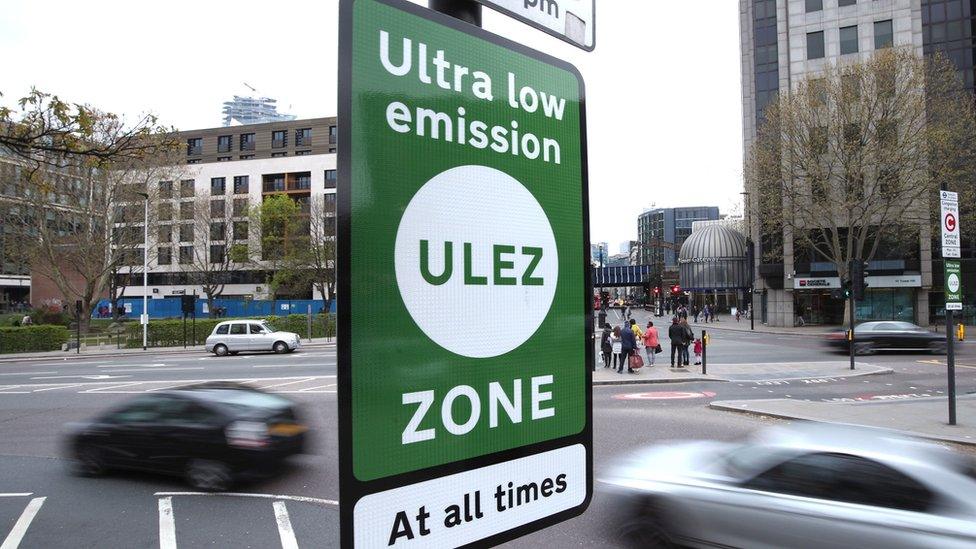Expanded Ulez has improved air quality - City Hall
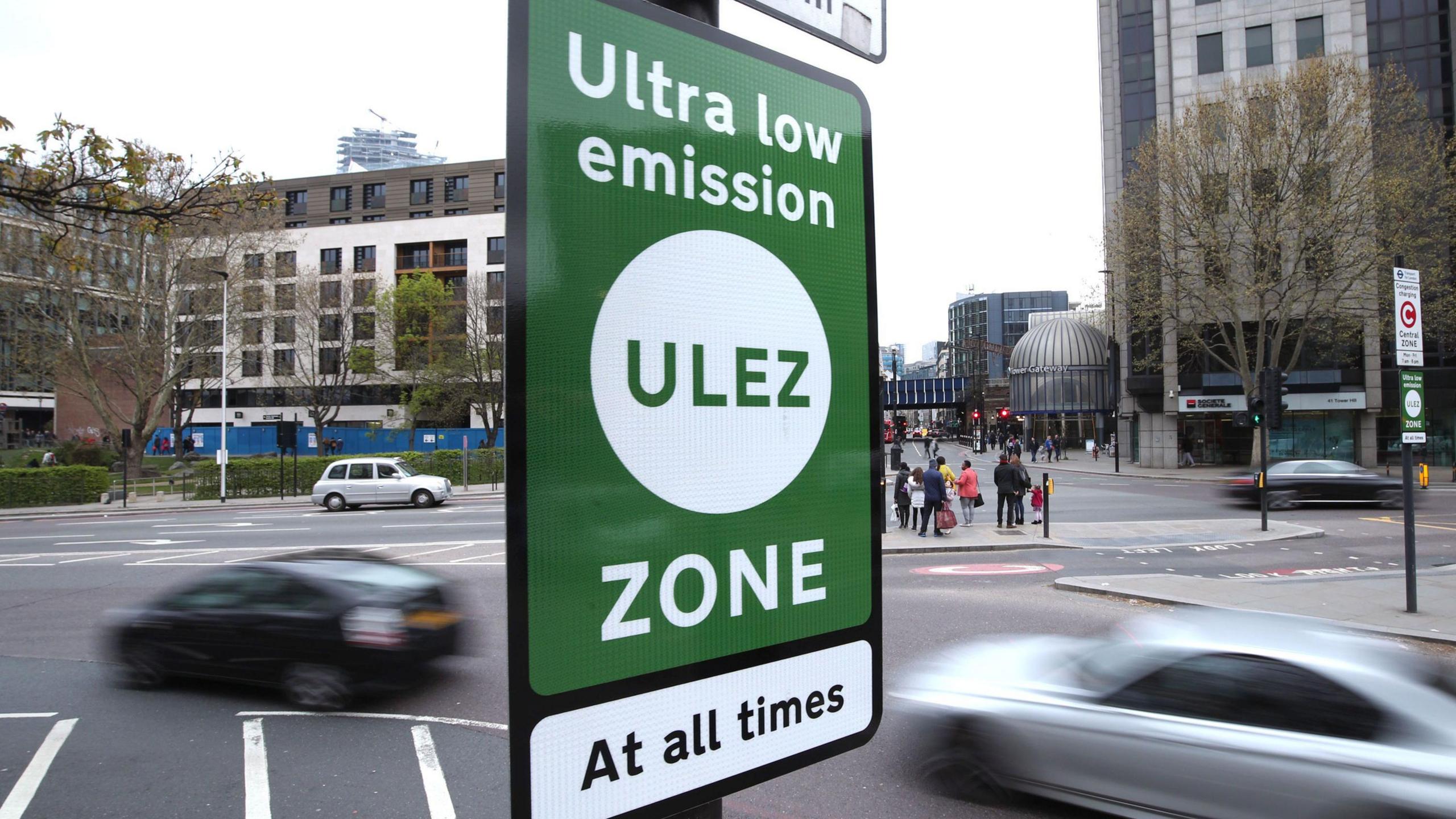
Drivers of non-compliant vehicles must pay a £12.50 daily charge to come into the zone
- Published
Expanding London’s Ultra Low Emission Zone (Ulez) has had a "positive impact" on air quality and reduced harmful emissions from cars and vans, according to a City Hall report., external
It says roadside pollution in outer London was down an average of 3.5% on what it would have been without Ulez in the six months after the zone was extended last August.
Nitrogen oxide (NOX) emissions from cars are estimated to have reduced by 13% and from vans by 7%, as drivers scrapped or cut down on driving their polluting vehicles.
London’s Mayor Sadiq Khan claimed it was "better than predicted" but the Tories said hundreds of millions of pounds had been spent on a "minimal reduction" in pollution.
The six-month report by the Greater London Authority (GLA) assessed the impact on air quality and emissions based on estimates of what would have happened if Ulez had not been expanded.
City Hall claimed the reduction in emissions was equivalent to removing 200,000 cars from the road for one year.
The report's authors said although it was "not straightforward" to isolate the impact of Ulez and its expansion because it was hard to separate from other policies like the growing zero-emission bus fleet and tighter regulations on lorries and taxis, the report looked at the impact all of these policies have had.
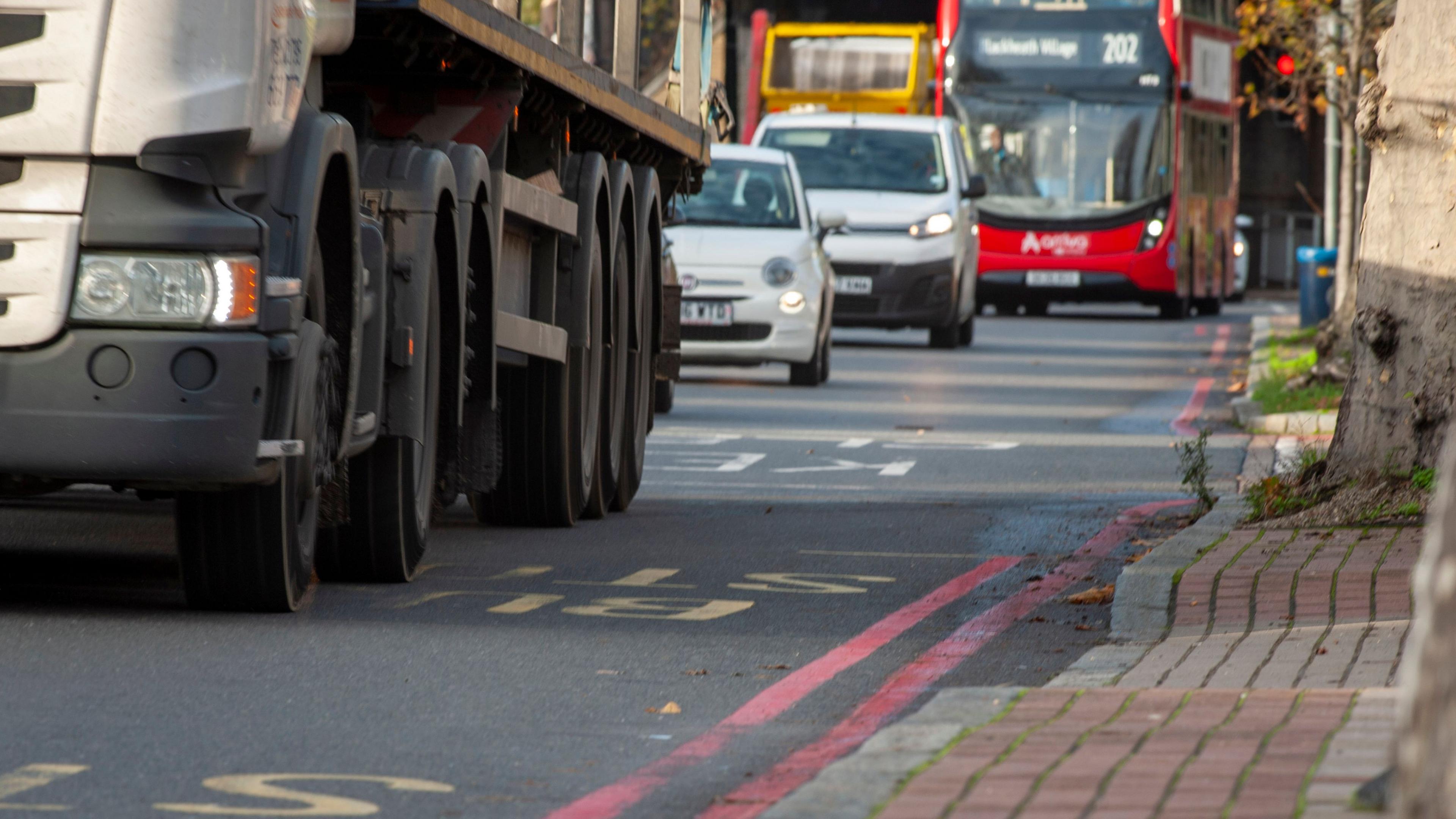
The Tories said hundreds of millions of pounds had been spent on a “minimal reduction” in pollution
It found that across the whole of London, there had been a small reduction in roadside concentrations of nitrogen dioxide (NO2) of between 1.5% and 2.5%.
The report looked at both the emissions of NOX from vehicle exhausts and how they combined with other elements to create NO2 pollution, which is the key indicator of London’s air quality.
In outer London they reduced by between 2.7% and 4.4% a month.
More than 96% of vehicles now comply with Ulez standards, compared with 91% a year ago, the report said.
Transport for London said this was bigger than it had predicted.
'Progressively diminished'
However the report also underlined how the impact of Ulez had progressively diminished the further it expanded.
A study a year after it was extended to cover inner London, external showed reductions of pollution beyond what would have happened without the scheme of 48% in central London and 21% in inner London.
There is also no data on the impact on levels of carbon dioxide (CO2), one of the main contributors to climate change.
A significant number of motorists may have switched from diesel to petrol which emit more carbon.
'Save lives'
The mayor said the latest data showed expansion was having a "significant effect" and "exceeding predictions" made during the consultation period.
"The decision to expand the Ulez London-wide was a difficult one, but necessary to save lives, protect children’s lungs and help reduce the risk of Londoners developing asthma, dementia and a host of other health issues," he said.
"London’s air quality is improving at a faster rate than the rest of England, and 96% of vehicles are now compliant, with tens of thousands of Londoners benefitting from our scrappage scheme.
"It's thanks to our bold policies, including Ulez, that we are now set to get London’s air to within legal limits by 2025," he said.
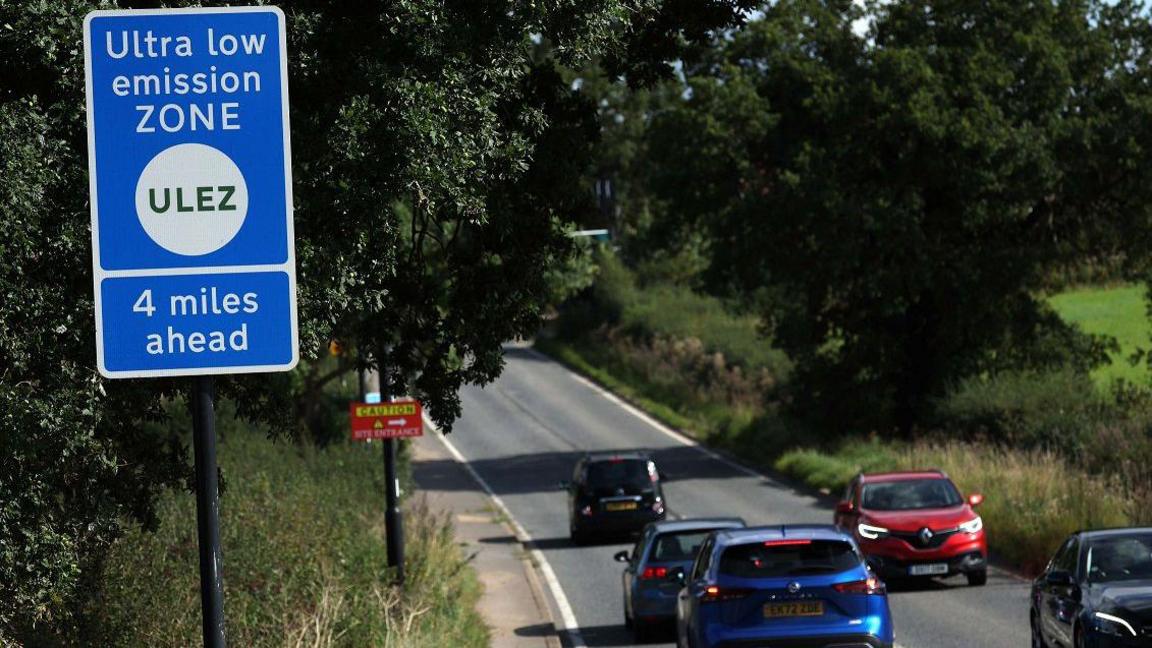
The Ulez was extended across all London boroughs in August 2023
Mr Khan made Ulez expansion a centrepiece of his second mayoral term, facing protests and an unsuccessful legal challenge from five councils.
He came under pressure to improve the scrappage fund and widen eligibility, eventually providing £210 million to compensate people prepared to get rid of their polluting vehicles.
Neil Garratt, Conservative assembly member, said: "This report shows the £500m cost of expanding the Ulez to outer London has delivered minimal reduction in air pollution, despite the mayor’s claims.
"The Conservative group were clear from the off that we absolutely supported improving air quality, but the case for the expansion simply did not add up.
"We can now see that reflected very clearly in the mayor’s own data," he said.
'Brave steps'
Mr Garratt added: "At the same time, we cannot forget there are many Londoners on low incomes who own non-compliant vehicles they purchased through finance.
"The scrappage scheme does not cover the amount they still owe on the vehicle, meaning they are trapped paying the mayor’s £12.50 daily charge," he said.
Green assembly member Caroline Russell called on the mayor to go further with measures to reduce traffic and improve public transport.
"It's great to have a report that shows the Ulez has worked throughout London to reduce pollution a little, but we need bold, brave steps to urgently transform the ways we travel round our city now," she said.
Hirra Khan Adeogun, co-director of climate charity Possible, said: "Today’s Ulez report shows that we really can clean up our air with simple, sensible public health policy that protects millions of Londoners from the harm of toxic air that literally shrinks children's lungs and shortens the lives of residents."
Listen to the best of BBC Radio London on Sounds and follow BBC London on Facebook, external, X, external and Instagram, external. Send your story ideas to hello.bbclondon@bbc.co.uk, external
- Published26 June 2024

- Published11 March 2024
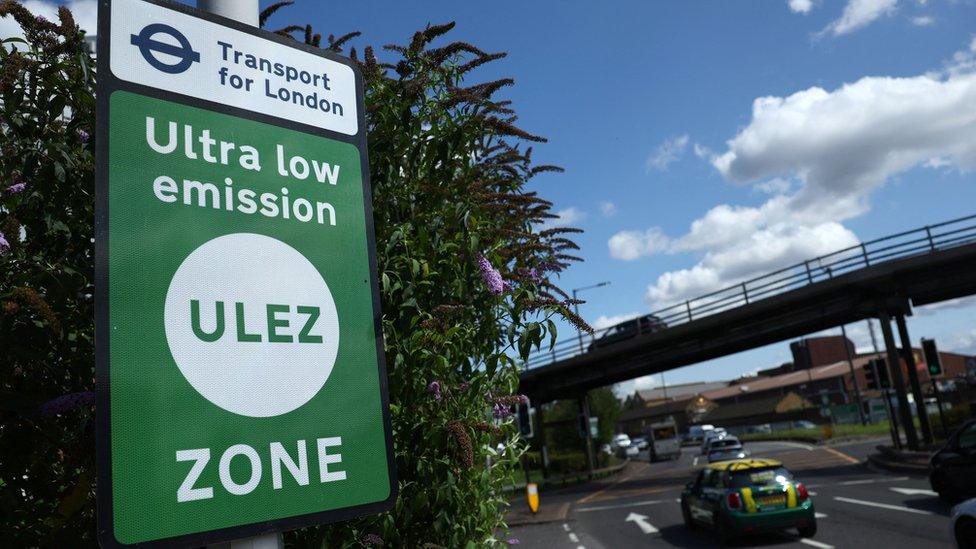
- Published7 February 2024
